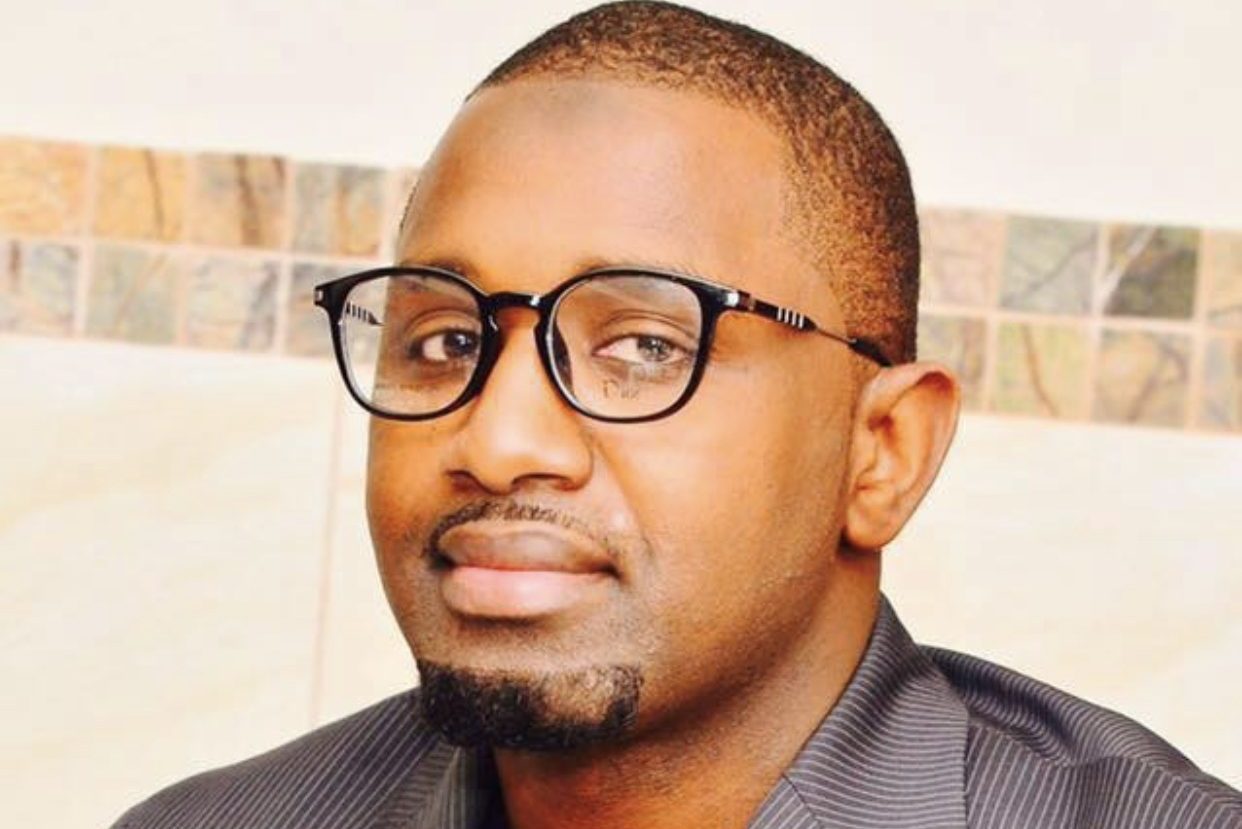Tirmidhi relates, through his chain of narrators from ‘Uthman ibn Hunayf, that a blind man came to the Prophet (Allah bless him and give him peace) and said,
“I’ve been afflicted in my eyesight, so please pray to Allah for me.” The Prophet (Allah bless him and grant him peace) said: “Go make ablution (wudu), perform two rak’as of prayer, and then say:
“Oh Allah, I ask You and turn to You through my Prophet Muhammad, the Prophet of mercy; O Muhammad (Ya Muhammad), I seek your intercession with my Lord for the return of my eyesight [and in another version: “for my need, that it may be fulfilled. O Allah, grant him intercession for me”].”
The Prophet (Allah bless him and give him peace) added, “And if there is some need, do the same.”
حدثنا محمود بن غيلان حدثنا عثمان بن عمر حدثنا شعبة عن أبي جعفر عن عمارة بن خزيمة بن ثابت عن عثمان بن حنيف أن رجلا ضرير البصر أتى النبي صلى الله عليه وسلم فقال ادع الله أن يعافيني قال إن شئت دعوت وإن شئت صبرت فهو خير لك قال فادعه قال فأمره أن يتوضأ فيحسن وضوءه ويدعو بهذا الدعاء اللهم إني أسألك وأتوجه إليك بنبيك محمد نبي الرحمة إني توجهت بك إلى ربي في حاجتي هذه لتقضى لي اللهم فشفعه في
In his discussion of the above Sahih Hadith Shaykh Nuh Keller states:
“The hadith explicitly proves the validity of supplicating Allah (tawassul) through a living intermediary, as the Prophet (Allah bless him and grant him peace) was alive at the time. The author of the article holds that the hadith implicitly shows the validity of supplicating Allah (tawassul) through a deceased intermediary as well, since:
The Prophet (Allah bless him and grant him peace) told the blind man to go perform ablution (wudu) pray two rak’as, and then make the supplication containing the words, “O Muhammad, I seek your intercession with my Lord for the return of my eyesight,” which is a call upon somebody physically absent, a state of which the living and the dead are alike.
Supplicating Allah (tawassul) through a living or deceased intermediary is, in the author’s words, “not tawassul through a physical body, or through a life or death, but rather through the positive meaning attached to the person in both life and death, for the body is but the vehicle that carries that significance.
And perhaps the most telling reason, though the author does not mention it, is that everything the Prophet (Allah bless him and grant him peace) ordered to be done during his lifetime was “legislation” valid for all generations until the end of time unless proven otherwise by a subsequent indication from the Prophet himself (Allah bless him and grant him peace), the tawassul he taught during his lifetime not requiring anything else to be generalized to any time thereafter. “…..
Regarding the authenticity of this Hadith the following was mentioned by Shaykh Nuh:
This hadith was recorded was recorded by Bukhari in his “al-Tarikh al-kabir”, by Ibn Majah in his “Sunan”, where he said it was rigorously authenticated (SAHIH), by Nasa’i in “Amal al-yawm wa al-layla”, by Abu Nu’aym in “Ma’rifa al-Sahaba”, by Baihaqi in “Dala’il al-nubuwwa”, by Mundhiri in “al-Targhib wa al-tahrib”, by Haythami in “Majma’ al zawa’id wa manba’ al-fawa’id”, by Tabarani in “al-Mu’jam al-kabir”, by Ibn Khuzayma in his “Sahih”, and by others. Nearly 15 hadith masters (“huffaz”, hadith authorities with more than 100,000 hadiths and their chains of transmission by memory) have explicitly stated that this hadith is rigorously authenticated (sahih).
As mentioned above, it has come with a chain of transmission meeting the standards of Bukhari and Muslim, so there is nothing left for a critic to attack or slanderer to disparage concerning the authenticity of the hadith. Consequently, as for the permissibility of supplicating Allah (tawassul) through either a living or dead person, it follows by human reason, scholarship, and sentiment, that there is flexibility in the matter. Whoever wants to can either take tawassul or leave it, without causing trouble or making accusations, since it has been this thoroughly checked (“Adilla Ahl al-Sunna wa al-Jama’a , 79-83).
Imam Shawkani RH [a major authority for the “salafis” due to his stance on Taqlid] says in al-Durr al-nadid fi ikhlas kalimat al-tawhid:
There is no harm in tawassul through any one of the Prophets or Friends of Allah or scholars of knowledge… One who comes to the grave as a visitor (za’iran) and invokes Allah alone, using as his means the dead person in the grave, is as one who says: “O Allah, I am asking that you cure me from such-and-such, and I use as a means to You whatever this righteous servant of Yours possesses for worshipping You and striving for Your sake and learning and teaching purely and sincerely for You.” Such as this, there is no hesitation in declaring that it is permitted…
Imam Shawkani (ra)also stated in al-Durr al-nadid: Regarding what those who forbid tawassul to Allah through the Prophets and the saints cite to support their position, such as Allah’s sayings:
· “We only worship them in order that they may bring us nearer” (39:3)
· “Do not call on any other god with Allah, or you will be among those who will be punished” (26:213)
· “Say: Call on those besides Him whom ye fancy; they have no power to remove your trouble from you or to change them. Those unto whom they cry seek for themselves the means of approach to their Lord, which of them shall be the nearest; they hope for His mercy and fear His wrath: for the wrath of thy Lord is something to take heed of” (17:57)
These verses are irrelevant.
Rather: they support exactly the reverse of what the objectors to tawassul claim, since the verses are related to another issue.
To wit: the verse “We only worship them in order that they may bring us nearer” explicitly states that they worship them for that purpose, whereas the one who makes tawassul through a scholar, for example, never worships him, but knows that he has a special distinction (maziyya) before Allah for being a carrier of knowledge; and that is why he uses him as a means.
Similarly irrelevant to the issue is Allah’s saying: “Do not call on any other god with Allah.” This verse forbids that one should call upon another together with Allah, as if saying: “O Allah and O So-and-so.” However, the one who makes tawassul through a scholar, for example, never calls upon other than Allah. He only seeks a means to Him through the excellent works that one of His servants achieved, just as the three men in the cave who were blocked by the rock used their good works as a means to have their petition answered.
Similarly irrelevant to the issue is Allah’s saying: “Those unto whom they cry…” for it refers to people who call upon those who cannot fulfill their request, at the same time not calling upon Allah Who can; whereas one who makes tawassul through a scholar, for example, never called except upon Allah, and none other besides Him.
The above shows the reader that these objectors to tawassul are bringing forth evidence that is irrelevant to the issue at hand. Even more irrelevant is their citing of the verse:
· “The Day when no soul shall have power to do anything for another: for the Command, that Day, will be all with Allah.” (82:19)
for that noble verse contains nothing more than the fact that Allah alone decides everything on the Day of Judgment, and that none other will have any say at that time. However, the maker of tawassul through one of the Prophets or one of the scholars, never believes that the one through whom he makes tawassul is in partnership with Allah on the Day of Judgment! Whoever believes such a thing in relation to a Prophet or non-Prophet is in manifest error.
Equally irrelevant is their objection to tawassul by citing the verses:
· “Not for you is the decision in the least” (3:128)
· “Say: I have no power over over good or harm to myself except as Allah wills” (7:188)
for these two verses are explicit in that the Prophet has no say in Allah’s decision and that he has no power to benefit or harm himself in the least, let alone someone else: but there is nothing in those two verses to prevent tawassul through him or any other of the Prophets or Friends of Allah or scholars.
Allah has given His Prophet the Exalted Station (al-maqam al-mahmud) — the station of the Great Intercession (al-shafa`a al-`uzma), and He has instructed creation to ask for that station for him and to request his intercession, and He said to him: “Ask and you shall be granted what you asked! Intercede and you shall be granted what you interceded for!” And in His Book He has made this dependence on the fact that there is no intercession except by His leave, and that none shall possess it except those whom He pleases…
Equally irrelevant is their adducing as proof against tawassul:
· “And admonish your nearest kinsmen” (26:214)
whereupon the Prophet said: “O So-and-so son of So-and-so, I do not have any guarantee on your behalf from Allah; and O So-and-so daughter of So-and-so, I do not have any guarantee on your behalf from Allah.”
For in the preceding there is nothing other than the plain declaration that he cannot benefit anyone for whom Allah has decreed harm, nor harm anyone for whom Allah has decreed benefit, and that he does not have any guarantee from Allah from any of his close relatives, let alone others. This is known to every Muslim. There is nothing in it, however, that prohibits making tawassul to Allah through the Prophet, for tawassul is a request from the One Who holds power to grant and deny all requests. The petitioner who makes tawassul only desires to place, at the front of his petition, what may be a cause for the granting of his petition by the One Who alone gives and withholds, the Owner of the Day of Judgment.
mouhamedsakho.com














![[Audio] Radio Mourid International du 7 novembre 2013](https://mouhamedsakho.com/wp-content/uploads/2013/07/bamba.jpg)
![[Audio] Voice of Africa avec l’Association des Sénégalais d’Amérique (ASA) du 25 août 2015 avec El hadji Malick Tall](https://mouhamedsakho.com/wp-content/uploads/2013/07/vof.jpg)
![[Audio] African Times du 30 septembre 2013](https://mouhamedsakho.com/wp-content/uploads/2013/07/africantimes-300x285.jpg)